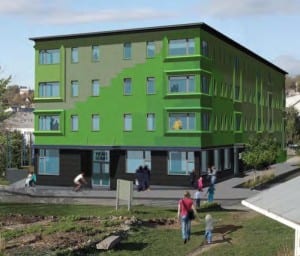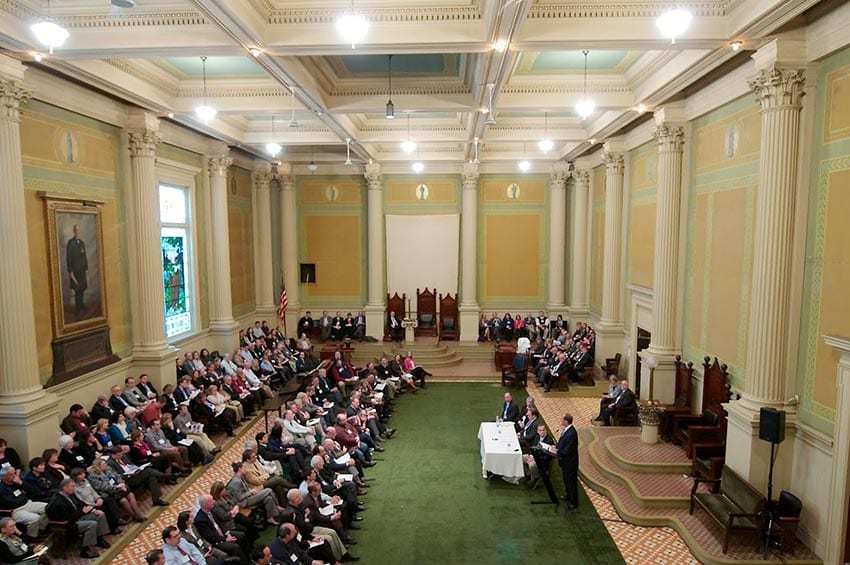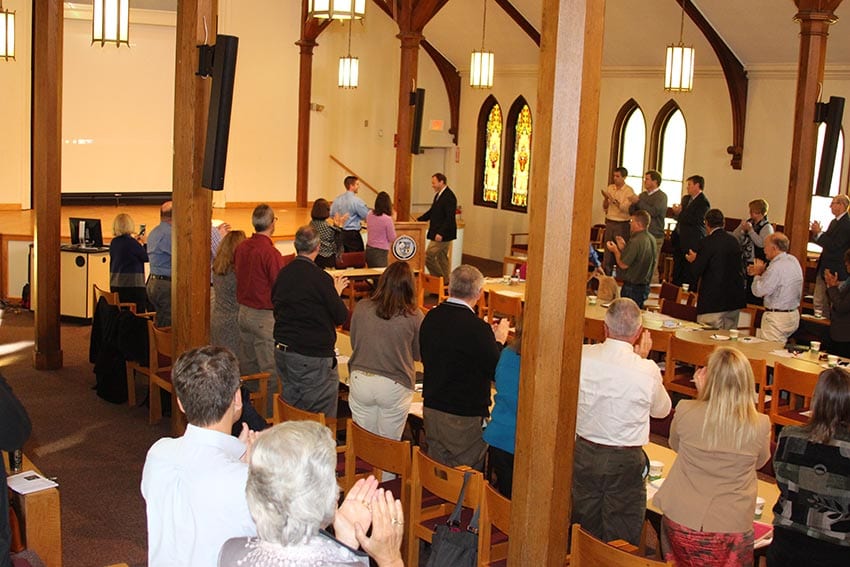March 11, 2016
BDN Maine
By The BDN Editorial Board
Portland, Maine — 07/28/14 — A rendering of the Bayside Anchor project shows the four-story apartment building planned for 49 Boyd St. The Portland Housing Authority will rent 36 affordable housing units and hopes construction can begin by June 2015. The Forecaster image courtesy of Portland Housing Authority
Housing and rental prices are on the rise, and apartment vacancy rates are near zero in Portland, highlighting the city’s popularity as a place to live, work and retire. In many ways, these are positive signs for the city. The downside is a lack of affordable housing for some of the city’s longtime residents and families.
In a recent example, 24 residents of an apartment complex on Grant Street received eviction notices from the New Jersey company that owns their complex. The company plans to upgrade the apartments for higher-paying residents. City officials stepped in to delay the evictions, but it remains unclear where the residents, some of whom have mental illness, will go. Although the number of tenants affected in this case was high, this is a common scenario as developers seek to meet the city’s demand for upscale condominiums and apartments.
A lack of affordable housing is not unique to Portland. Growing cities across the country are looking for ways to increase the supply of housing that is within reach of young working people and low-wage families as well as those who qualify for federally supported rental assistance.
The most direct solution is to build more affordable housing.
Construction of a 45-unit public housing building in Portland’s Bayside neighborhood is underway. Yet it won’t meet the full demand. There are 7,500 people on a waiting list for affordable housing vouchers in seven communities stretching from Augusta to South Portland; 4,000 of them live in Portland. Another 1,500 Portland residents are on a waiting list for public housing units managed by the Portland Housing Authority. The authority has 1,000 housing units and 1,800 Section 8 vouchers. But it takes a minimum of three years to rise to the top of these lists.
In the meantime, low-income Portland residents “pay way more than they should for housing,” according to Mark Adelson, executive director of Public Housing Authority.
State lawmakers are considering a bill that would streamline housing assistance by creating a single statewide waiting list for housing vouchers. This won’t shorten the wait times, however, because not enough affordable housing is available.
Building new units is dependent on funding from the federal Department of Housing and Urban Development and the state. Both sources are inadequate, Adelson said. In addition, vacant lots are rare in the city so there is little room for new housing construction.
As a result, Portland has tried to incentivize developers and landlords to include affordable housing in their projects. For example, the city’s inclusive housing ordinance requires that a small number of affordable units be included in a new development project. The City Council next month will vote on a proposal to raise the fee developers must pay to obtain a permit for housing construction projects. A city ordinance already reduces this fee by 25 percent if affordable units are included. If the fee rises from 1.1 to 1.6 percent of a project’s cost, this significantly increases the financial incentive to include affordable housing.
Some in the city are talking about rent controls and more rights for tenants. These are worthwhile conversations, but both come with the risk of slowing development in the city.
Bangor has a different approach. Because its 560 public housing units are always full and demand oustrips supply for Section 8 vouchers, the city has focused on acquiring housing for working families that don’t qualify for subsidies or vouchers. Just this week, the Bangor Housing Authority closed on the purchase of the 60-unit Parkwoods housing development on Griffin Road, which had been owned by the city. The authority will renovate the units and rent them at monthly rates slightly below the city’s market rate. It has successfully used this model for 10 downtown apartments in the building that formerly housed Freese’s Department Store.
Encouraging growth while seeking to preserve affordable housing is a difficult balance. Bangor and Portland are wise to pursue innovative solutions to their affordable housing crunches.



